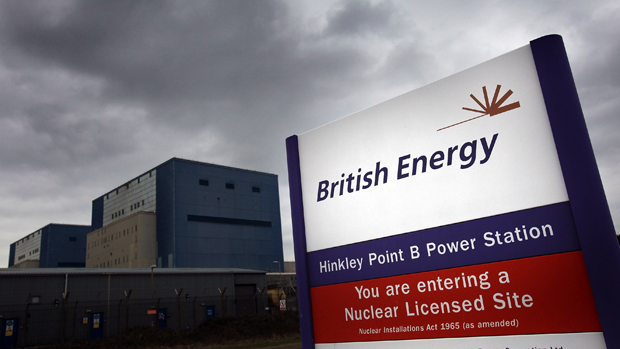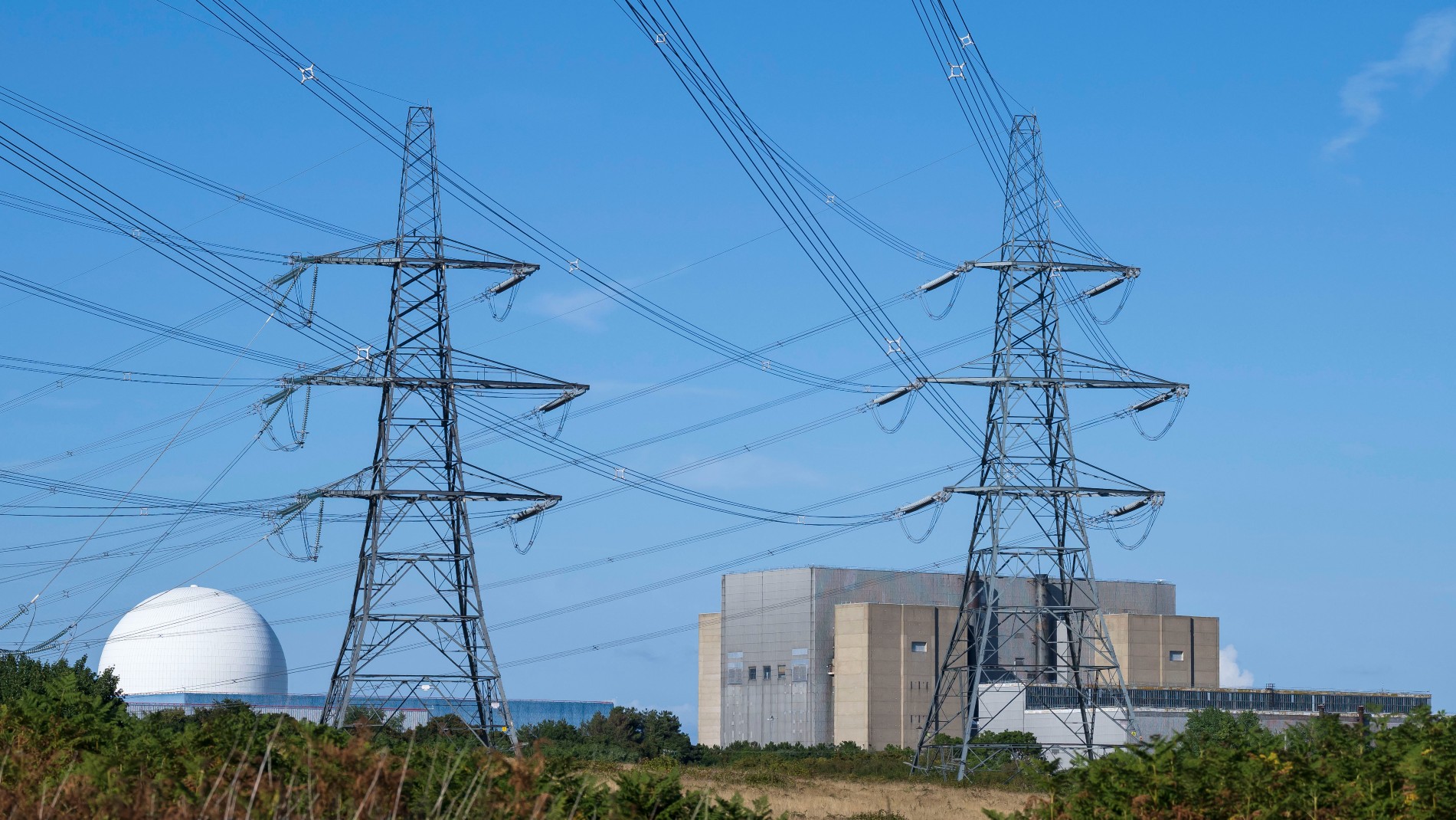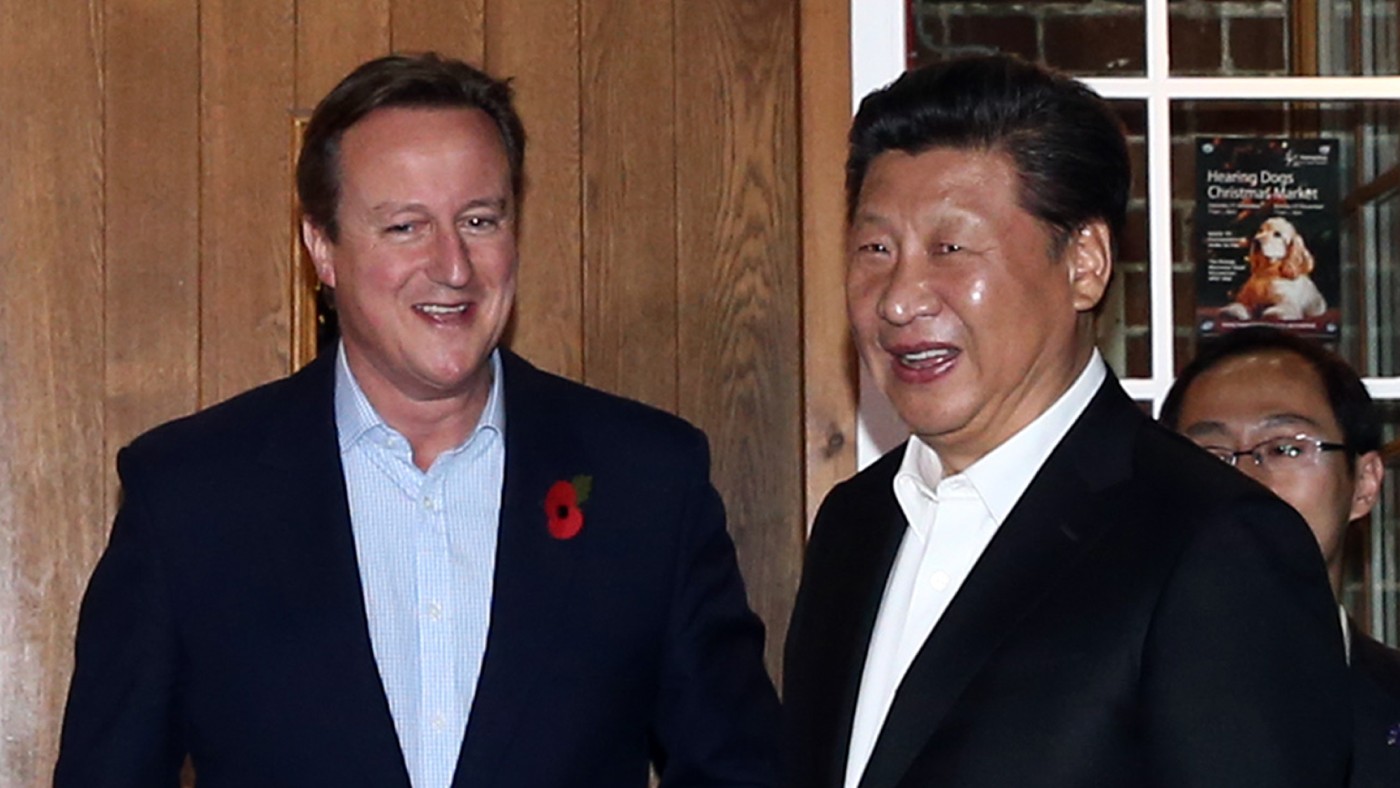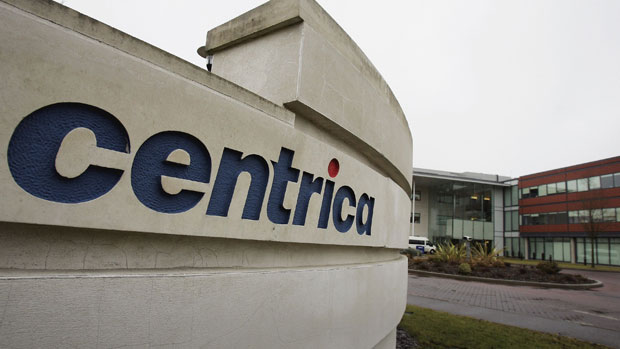Hinkley Point 'will cost public double the amount it should'
National Audit Office says nuclear project is 'risky and expensive' and has 'uncertain' economic benefits

A free daily email with the biggest news stories of the day – and the best features from TheWeek.com
You are now subscribed
Your newsletter sign-up was successful
Hinkley Point nuclear project could still be postponed
08 April
Plans to build the world's most expensive nuclear power station at Hinkley Point, near Somerset, could hit further delays, a French government official has hinted.
Speaking during a radio interview this week, ecology minister Segolene Royal (pictured above) was asked whether the £18bn project, which is two-thirds funded by French state-backed energy giant EDF, would be postponed. She responded by stating simply that it is "still under discussion", says The Guardian.
The Week
Escape your echo chamber. Get the facts behind the news, plus analysis from multiple perspectives.

Sign up for The Week's Free Newsletters
From our morning news briefing to a weekly Good News Newsletter, get the best of The Week delivered directly to your inbox.
From our morning news briefing to a weekly Good News Newsletter, get the best of The Week delivered directly to your inbox.
"There's an agreement between France and Britain so things should go ahead. But the trade unions are right to ask for the stakes to be re-examined," Royal said.
In particular, there should be "further proof" that the venture would not affect investment in renewable energy, she added.
Last week, the Financial Times reported that a group of senior engineers at EDF had circulated a white paper among executives calling for a delay of at least two years to overcome deficiencies in design and the "very low" competency of fellow state-owned reactor supplier, Areva. Board member and employee director Christian Taxil has also publicly called for the plans to be postponed.
EDF's relationship with Areva is indirectly one of the main reasons for the high profile divisions over Hinkley Point. EDF is being compelled to invest tens of billions of euros to bail out its partner and upgrade France's nuclear power fleet but is already labouring under its own €37bn (£26bn) debt pile.
A free daily email with the biggest news stories of the day – and the best features from TheWeek.com
Supporters for the deal include the British government, which has staked its reputation on Hinkley Point as the core part of its carbon-light energy strategy for future decades, and French economy minister Emmanuel Macron, who has said it will almost certainly get approval at an EDF investor meeting next month.
The incentives for the company are long-term and come in the form of an energy price guarantee that is almost three times current wholesale prices. A new agreement also offers £20bn protection against a future UK government pulling the plug.
The FT reports that 100 EDF engineers also responded to their colleagues concerns by issuing an open letter stating that the company can "build and deliver the two Hinkley Point reactors on time".
Hinkley point project will 'definitely' go ahead - probably
23 March
The saga over the nuclear facility at Hinkley Point will roll on for two further months, despite assurances from the main backer and the French government that it will go ahead.
Speaking to MPs on the parliamentary energy and climate change committee, the boss of state-backed energy giant EDF, which has developed the experimental reactor being used at the Somerset and will stump up two-thirds of the cash, said it is "definitely" going ahead, according to the Western Daily Press.
Chief executive Vincent de Rivaz said "clearly and categorically" that the world's largest nuclear facility "will be built". But he also confirmed that a final decision on a project that has already soaked up £2.4bn of investment and that every month costs a further £55m.
His comments came as Emmanuel Macron, the French economy minister, told a separate parliamentary committee across the channel that it was "unlikely" EDF would choose not to take part in what is the "principal nuclear project in the developed world", reports the BBC.
Macron stated that a final decision would not in fact be taken until May, at the scheduled general assembly of EDF. In the meantime, there are questions that must be answered if all this optimism is to become a confirmed deal.
The company has previously said it cannot go ahead without more guarantees and support from the French state as it struggles to meet its £18bn Hinkley Point investment and a €55bn (£44bn) bailout of French national nuclear operator Areva, all while servicing a massive €37bn (£29bn) debt pile.
Macron said the deal was in the long-term interests of EDF as the guaranteed electricity price of £92.50 per megawatt hour would yield a nine per cent return per year for six decades. The high strike price, almost three times current wholesale rates, and other liabilities being taken on by the UK government have prompted strong criticism at home.
The government says it remains committed to Hinkley Point, which will eventually provide six per cent of the UK's electricity needs.
Hinkley Point given French 'bailout' - and a 'poison pill' for the UK taxpayer
18 March
Hinkley Point C, the controversial £18bn nuclear plant planned in south-west England, looks ever-more likely to go ahead after the French government vowed to bail out its main backer.
French energy supplier EDF, which is 85 per cent state-owned, had said last week it wished to go ahead with the deal but that it would not do so without guarantees of support. Today, France's economy minister, Emmanuel Macron, promised the state will indeed step in, with a range of action that could even involve directly boosting the company's capital.
During a visit to EDF's nuclear plant at Civaux, mid-western France, Macron said it would be a "mistake" not to "participate in the biggest nuclear project in the world".
He indicated the government could continue to take its dividend in shares rather than cash for several more years to ease the burden on EDF's balance sheet, Reuters notes, and that it could do even more.
A decision on financing and assistance will be decided by May, the same month as the company's annual shareholder meeting.
Unions and others are critical of the deal amid concerns over the precarious finances of EDF, which has borrowed heavily to pay dividends and racked up €37bn (£29bn) in debt. It is also committed to a €50bn (£39) bailout of nuclear developer Areva.
The UK government is also making moves to reassure EDF its investment is safe. It has agreed to new provisions that includes what The Guardian describes as a £22bn "poison pill" for the taxpayer - a liability for losses should the plant be shut down by either a future government or international regulators in the next 35 years.
Critics rounded on the latest sign of poor value for the British taxpayer, coming on top of price guarantees for the electricity generated that is three-times the current wholesale price.
"The £22bn is the maximum that would be payable and the deal allows the plant to be closed on safety or security grounds without compensation being paid," The Guardian says.
A spokesman for the Department for Energy and Climate Change said: "Hinkley Point C will give a boost to our energy supply and our economy, bringing in billions of pounds of investment into the UK and creating 25,000 jobs during construction. The [deal] gives developers the certainty they need to make sizeable investments… by providing protection for a political risk that is outside of their control."
A spokesman for EDF added: "EDF and its Chinese partner are taking the construction risks for this huge project. Consumers will not pay a penny until the plant generates its reliable low-carbon electricity in 2025."
Hinkley Point station plan derided as 'insanity' and 'worst ever deal'
08 March
Plans to build an £18bn nuclear plant in Somerset look set to go ahead, even as opposition mounts at home and abroad.
The Hinkley Point power station is expected to be finally agreed in April after being delayed for several years, most recently since October, while the reactor's builder, EDF, deliberated over its funding position. This is despite EDF finance chief Thomas Piquemal's shock resignation yesterday in protest at the strain the deal will put on a group already struggling with a €37bn (£28.7bn) debt load.
"With the support of its shareholder, the [French] state, EDF can confirm that it is looking to invest in two reactors at Hinkley Point under the best possible financial conditions for the group," the company's chairman, Jean-Bernard Levy, said in a statement reported by The Guardian. He added that he regretted the "haste" of Piquemal's departure.
While the UK government would not "speculate on the resignation of one individual", it added that "we continue to fully support the project". French economy minister Emmanuel Macron also reiterated his country's "full support" for the station, which he said would be "very profitable" over the next 30 years.
But it is precisely the source of these profits that is intensifying criticism from within Britain. The government will guarantee for 35 years a price of at least £92.50 per megawatt hour for the generated electricity, rising with inflation. That is almost three times the current wholesale price and the taxpayer will pick up the difference.
"The subsidies just look staggering," Dominic Whittome, an energy consultant at Mainline Energy, told The Times. "The government just didn't know what they were doing... It's the worst deal I've ever seen."
Peter Atherton, from the US investment bank Jefferies, added that if a cheaper and more proven Hitachi design were to be used instead of EDF's untested EPR reactor, which needs to be built in situ, the price guarantee could be reduced to £70, saving the government £500m a year or £17bn over the course of the contract.
Analysts also said Piquemal's departure should be a warning that building the most expensive reactor in the world in the current climate was "verging on insanity". Martin Young, an energy analyst at investment bank RBC Capital Markets, said EDF would need to sell "double-digit billions" worth of assets.
The scale of the project, which would supply six per cent of the UK's energy needs with no carbon consequences, is at the centre of to the government's plan to meet legally binding targets on climate change. It has been given cautious support from Labour, although the party has demanded a "plan B" in the event that EDF pull out.
EDF executive's departure clears path for Hinkley Point deal
7 March
French energy company EDF's finance chief has resigned - just as the firm prepares to announce how it will fund an £18bn project to build the UK's first new nuclear power station in a generation.
Thomas Piquemal had been a "trenchant critic" of the Hinkley Point project in Somerset, which is the most expensive nuclear development the world has ever seen, says the BBC's Kamal Ahmed. He quit yesterday over fears the cost of funding EDF's two-thirds stake will worsen its already precarious financial position.
As such, Kamal argues the shock decision is positive for supporters of the station, who include Prime Minister David Cameron and the French President Francois Hollande, as it removes one of the most influential dissenting voices on the board. A final decision is now expected in April.
"On this occasion, political will has trumped any financial concerns," Kamal adds. EDF is 85 per cent-owned by the French government.
Last October, the firm revealed it had sold a stake of around a third in Hinkley Point to China General Nuclear Power Corporation as part of a deal relating to three UK nuclear projects that will eventually see the Chinese state developer build a plant of its own on UK soil.
But there are still concerns over how EDF will fund its remaining share. The Financial Times notes it has a €37bn (£28.6bn) debt load, which is already around twice its entire market capitalisation, and it is locked into a deal to bail out fellow French nuclear reactor developer Areva.
Standard & Poor's said last year it might downgrade EDF's debt if it went ahead with the Hinkley Point investment.
Another concern, put forward in particular by unions with board representation, is that the technology for the new EPR reactor is unproven and has run into severe complications on projects in Finland and northern France.
Despite all of this, the company's bosses still see the long-term value in the UK nuclear programme, of which Hinkley Point is just the first development, in part because of generous electricity prices guaranteed for 35 years that are double the prevailing wholesale rate.
-
 Tourangelle-style pork with prunes recipe
Tourangelle-style pork with prunes recipeThe Week Recommends This traditional, rustic dish is a French classic
-
 The Epstein files: glimpses of a deeply disturbing world
The Epstein files: glimpses of a deeply disturbing worldIn the Spotlight Trove of released documents paint a picture of depravity and privilege in which men hold the cards, and women are powerless or peripheral
-
 Jeff Bezos: cutting the legs off The Washington Post
Jeff Bezos: cutting the legs off The Washington PostIn the Spotlight A stalwart of American journalism is a shadow of itself after swingeing cuts by its billionaire owner
-
 Great British Nuclear: one step forward to take two steps back?
Great British Nuclear: one step forward to take two steps back?Talking Point New flagship agency to deliver UK’s next generation of reactors delayed as nuclear output is set to decline further
-
 China General Nuclear: banned from Britain?
China General Nuclear: banned from Britain?feature The brief ‘golden era’ of Sino-British relations has turned ‘radioactive’
-
 Centrica to cut 4,000 jobs and sell UK nuclear holdings
Centrica to cut 4,000 jobs and sell UK nuclear holdingsSpeed Read Beleaguered British Gas owner lost 1.4 million customers last year